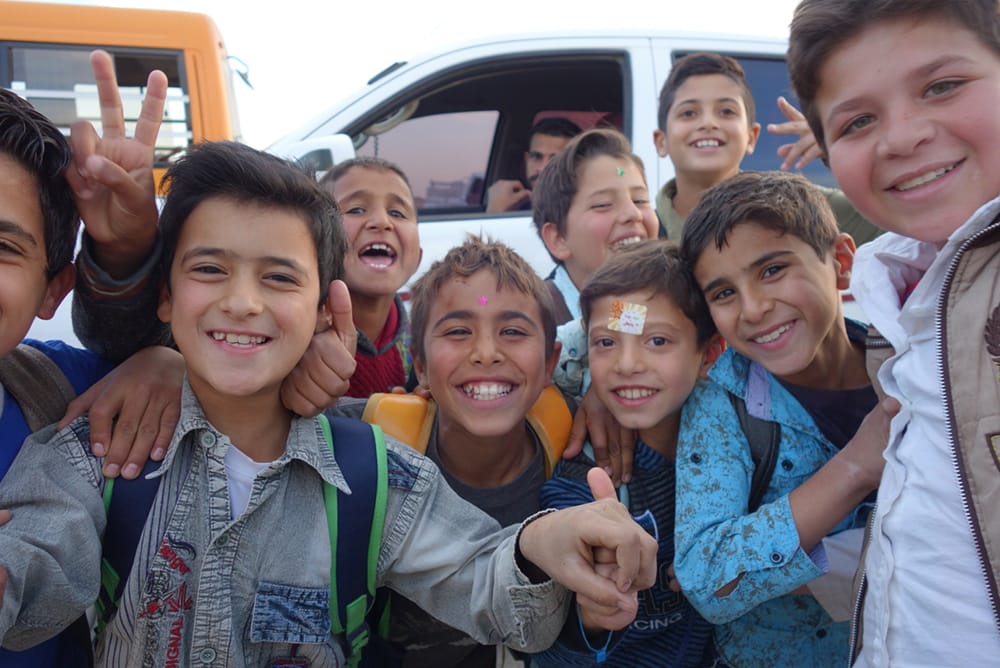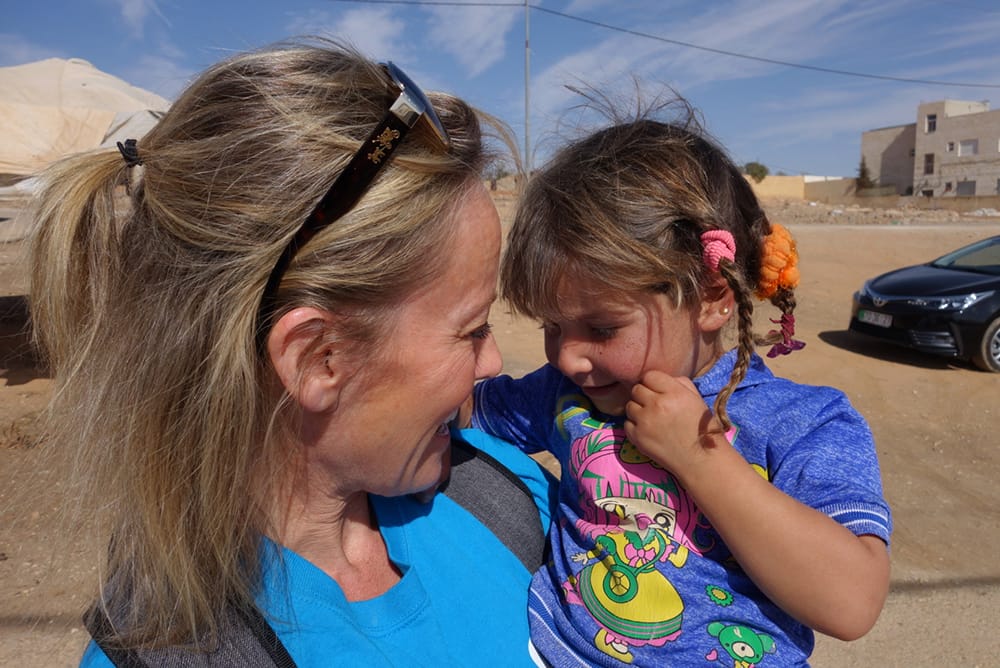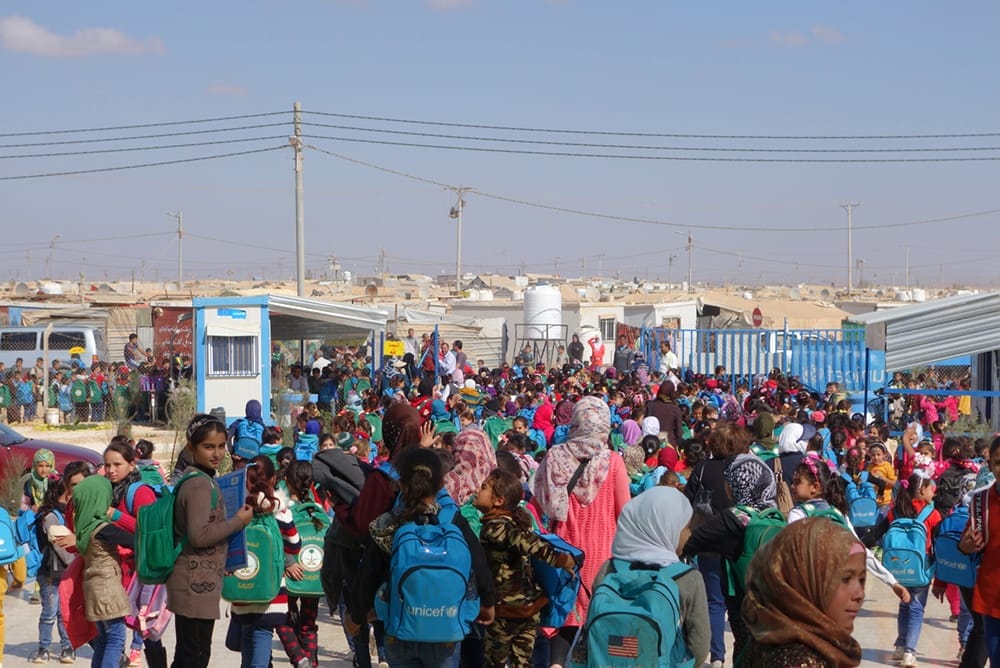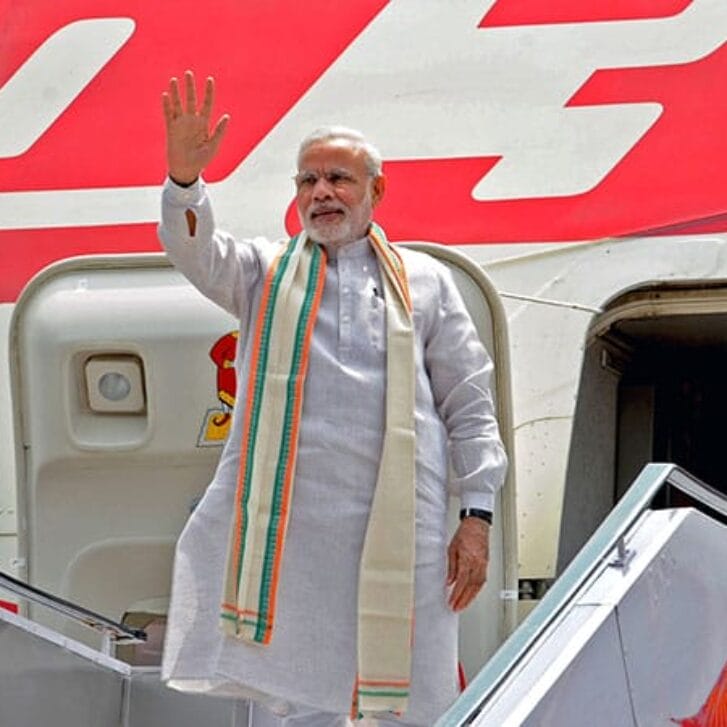I didn’t expect to see Miley Cyrus smiling back at me when I entered Moussa and Tamam’s shelter in the Zaatari refugee camp on the Jordanian-Syrian border, but there she was. Home for this family of eight consisted of two rooms held together by a patchwork-quilted metal exterior. The only item larger than a pillow was a freestanding cabinet upon which a giant Hannah Montana decal had taken up residence. Still, when asked how life was going after he fled Damascus, Moussa, the father, told us, “Things are fine. Thanks to God and everyone, we are living okay.”
As we warmed up to each other, it became apparent that “okay” is relative when you’ve left home with nothing at all. In Syria, Moussa was an employee of the government; now he is a part-time farmer, and a lucky one, since there are few available job permits for refugees in Jordan. As Moussa explained that his eldest child has forgone an education and toils as a manual laborer at age 14 to support the family, his passion and frustration were evident. His wife, Tamam, cried as she recalled giving birth to her youngest child so far away from her mother: “Our hope is just to go back to Syria. To go back to our families, to our land, to our soil, to our people. We are happy to go back and start from zero again.”

Syrian children smile for a photo op at their school in Amman.
As I sat next to Tamam, our legs touching while grief spilled out of her in a torrent, it struck me that she is the reason I flew halfway around the world. She’s the mother I watched on CNN crossing the Balkans with her babies in the late ’90s, when I was pregnant with my second child and wondering if I could be that strong. She’s the mother in Aleppo I saw on the front page of the Wall Street Journal, holding her child who was dead from starvation. She’s the mother who has been calling to me to bear witness to the largest humanitarian crisis since World War II.
In December, my husband, Tim Behle WG10, and I travelled to the Middle East with a convoy from UNICEF because we believe we are all capable of more than we know. Conventional wisdom may say it’s illogical to think that you can significantly better the lives of the estimated 1.3 million refugees living in Jordan. Our view is that it’s illogical for two Wharton grads to believe that you can’t. So we are leveraging the most powerful tools for sustainable change: philanthropy and entrepreneurship. We left our four-day UNICEF field visit with an enduring respect for the organization’s leadership, capabilities, and impact. However, philanthropy alone won’t move the needle enough to stave off the looming possibility of a lost generation of children.
In our time at Zaatari and in Amman, we toured multiple schools, technical skill-building centers, and the incredible water facility that makes life more tenable for refugees living inside the world’s second most water-deprived country. We visited several UNICEF “safe spaces” where children can seek refuge and contend with their exposure to violence and the debilitating impacts of traumatic stress. Everywhere we went, we saw vast potential for social enterprise to benefit both refugees and needy Jordanians. From housing to food to clothing to currency, the opportunities abound for technology, innovation, and workforce mobility to transform lives and markets.

The author with a Syrian girl at a settlement in Amman.
Young adults in Jordanian refugee camps engage in many types of vocational training. In one program we saw at Zaatari, young people are manufacturing baby and toddler clothing to help the youngest refugees survive freezing temperatures. In addition to the life-saving benefit these goods provide, the program has produced hundreds of skilled textile workers who could someday provide the labor for a social enterprise focused on the growing EU market for socially conscious children’s clothing.
When we consider refugees as a consumer population, we see an urgent need to solve the problems of proving one’s identity and verifying critical information (property ownership, educational degrees, certifications, health records, and the like). We heard about a limited solution used in an African refugee camp: handcrafted necklaces created to house the paper birth certificates of newborns. A more advanced solution would be a wearable device that stores digitized records. With more and more of the world’s population living under unstable governments, there’s a need for entrepreneurial Noahs to build modern-day arks.
The reality is that thousands of families like the community of 26 that we met in Amman are surviving without running water, without health care, without heat in the frigid winter or fans in the sweltering summer. They are living in the dirt. In Syria, they were lawyers, professors, business leaders. When you hear this, you can’t help but be humbled. What Tim and I want for our kids is the same as what these parents and virtually every parent around the world want for their kids—that they be safe, thrive, have a future. UNICEF reports that Syrian refugee children display more trauma and adverse psycho-social impact than any other childhood population it has ever worked with. We’ve seen this for ourselves. These are no longer people on CNN for us. We know their names, their faces, their stories, and their dreams. These are our children. We’ve come home to develop opportunities that will powerfully move their lives forward.
Tim and I are tapping into our Wharton network to explore launching a sustainable textiles enterprise that will employ refugees and disadvantaged Jordanians to meet the demands of the global luxury housewares market. Plans are also under way to develop a low-cost yet effective mental-health intervention app to address the dire needs of millions of children who have experienced unspeakable trauma.
Our hope is that our networks and our communities will find their own unique paths to better the lives of the 65 million children and adults who’ve been forcibly displaced around the globe—and that in the process they will inspire themselves and others to continue to find solutions to one of the most pressing problems the world faces today.
Jennifer Paradis Behle is chief executive and board chair of the Philadelphia-based Chappell Culpeper Family Foundation.
Published as “A Crisis, Up Close’” in the Spring/Summer 2018 issue of Wharton Magazine.

























